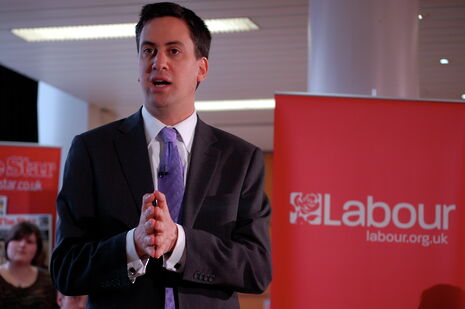University chancellors reject Labour’s proposal to cut tuition fees
£6,000 fees for higher education deemed ‘implausible’

An open letter by a coalition of university vice-chancellors has warned that reducing tuition fees from £9,000 to £6,000 a year would “damage the economy, affect the quality of students’ education, and set back work on widening access to higher education”.
The letter, published by the Times was signed by 19 English board members of Universities UK (UUK), representing various institutions including the University of Bath and the University of Bristol.
The group warned that “at least £10 billion of additional public funding would need to be found and ring-fenced over the course of the next parliament to close the gap” and dubbed the proposal “implausible”, given the major parties’ commitment to spending cuts.
The letter also pointed out that a simple reduction in tuition fees would benefit higher-earning graduates more greatly, and called on the government to instead increase support for student living costs.
In December 2013 the Shadow Universities Minister Liam Byrne announced that it was Labour’s long-term goal to introduce a “graduate tax”. Imogen Franklin, a second year English student, commented: “If fees were to be reduced, a graduate tax might make more sense as a buffer strategy to avoid pressure on university funding. Currently the money parents spend to top up their kids’ students loans acts as a graduate tax of sorts.”
The Liberal Democrat and Conservative coalition tripled tuition fees to a maximum of £9,000 per year in September 2012, prompting widespread criticism concerning graduate debt and the potential impact on students from poorer backgrounds.
According to the BBC’s assistant political editor Norman Smith, “trebled fees have deterred thousands of potential students from applying.” Noa Lessof-Gendler, a second year English student at Corpus, said that “reversing the Tory fee policy will raise the morale of young people and their faith in the government”.
Universities UK set up a panel at the time of the raise in tuition costs to examine the quantitative effect they were having on universities and students.
Sir Steve Smith, president of Universities UK in 2010 when MPs voted to raise tuition fees to £9,000, now estimates that the cost of a £6,000 tuition fee policy would be two billion pounds a year.
UUK acknowledges, however, that the reduction in fees remains “speculation”, as Labour has not explicitly committed to the proposal as yet.
Ed Miliband, leader of the Labour party, first announced plans to cut tuition fees from £9000 to £6000 at the party’s 2011 conference in London, but no further announcement was made on the topic at the official conference in 2014.
In a recent interview with Varsity, Shadow Education Minister Tristram Hunt refused to comment on the matter, but hinted that campaign decisions would be announced in February.
Sir David Bell, the vice-chancellor of the University of Reading and former permanent secretary at the Department for Education, commented, “in the next couple of weeks, it will of course become principally an election battleground issue”.
Appearing on Radio 4’s current affair sshow, The World at One, the Shadow Education Secretary Tristram Hunt stated that Labour was “not going into the election with promises we can’t fulfil”, reassuring voters that his party “are going to have a fully-costed proposal, which supports our universities, delivers fair access and a good return for the taxpayer.”
 Features / Should I stay or should I go? Cambridge students and alumni reflect on how their memories stay with them15 December 2025
Features / Should I stay or should I go? Cambridge students and alumni reflect on how their memories stay with them15 December 2025 News / Cambridge study finds students learn better with notes than AI13 December 2025
News / Cambridge study finds students learn better with notes than AI13 December 2025 News / Uni Scout and Guide Club affirms trans inclusion 12 December 2025
News / Uni Scout and Guide Club affirms trans inclusion 12 December 2025 Comment / The magic of an eight-week term15 December 2025
Comment / The magic of an eight-week term15 December 2025 News / News In Brief: Michaelmas marriages, monogamous mammals, and messaging manipulation15 December 2025
News / News In Brief: Michaelmas marriages, monogamous mammals, and messaging manipulation15 December 2025







